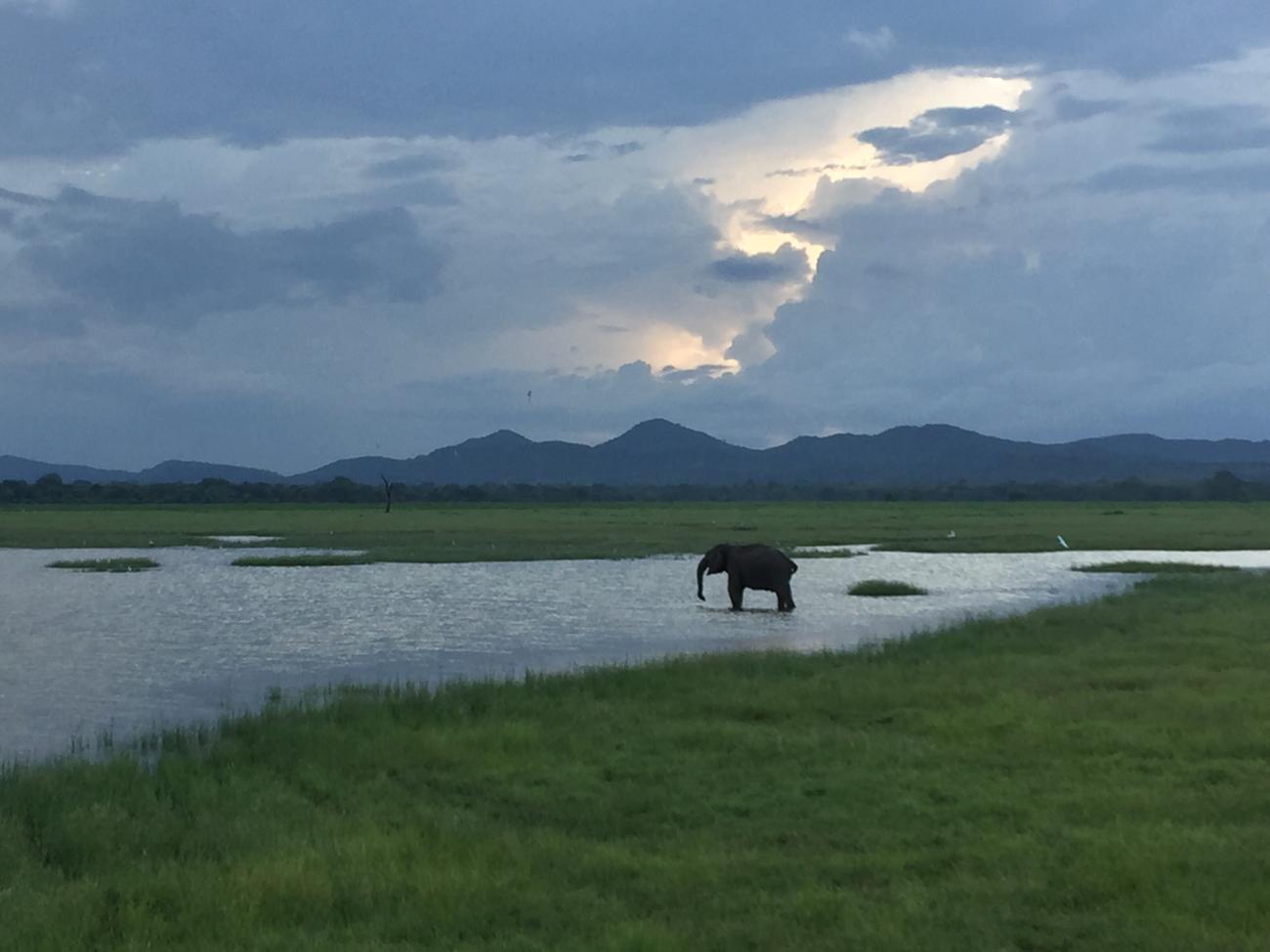We have Only One Earth, and time is running out

It's World Environment Day today. In 2022, the United Nations Conference on the Human Environment will celebrate 50 years since it convened in Stockholm, Sweden
However, half a century later, unsustainable patterns of consumption and production have led to the triple planetary crises of climate change, nature and biodiversity loss, and pollution and waste. This triple crisis is an existential threat, and it endangers human health, wealth, equality, and peace, as COVID-19 has demonstrated all too plainly.
While Sri Lanka and the world grapples with the impact of the pandemic and other global crises, the looming threat of the climate crisis is ever so prevalent, especially for an island nation such as Sri Lanka. Though compounded by sporadic weather conditions and other ecological challenges, Sri Lanka forever stands strong as a nation of rich natural resources and biodiversity. Throughout Sri Lanka’s journey to preserve its natural environment, promote green growth and restore its ecosystems, the United Nations in Sri Lanka has stood strong, with the people of Sri Lanka, against the tide.
Sri Lanka continues to work on environmental and climate resilience as part of its transition to green growth. Last year, the UN continued to support programmes aimed at achieving sustainable development at a larger scale by collaborating with national partners on novel approaches to address environmental concerns and respond to climate change. Among other priorities, the UN focused on disaster risk reduction, climate resilient agriculture and women’s leadership in environmental management.
The increasing frequency of extreme weather events such as droughts, floods, landslides and cyclones are ranking Sri Lanka amongst the top 10 countries on the Global Climate Risk Index (2018-2020). Climate change is posing an ever-increasing threat to people's livelihood and safety. The livelihoods of many Sri Lankan’s are connected to sectors that are highly vulnerable to environmental factors and COVID19 has aggravated the challenges, thus compounding the climate risks on our communities. The UN has worked to enhance the country’s resilience to climate change and disasters, and to reduce institutional, community and household vulnerabilities and improve capacities to better prepare for and adapt to climate change and natural hazards. In 2021, through cash transfers and creating assets, the UN supported over 35,000 people adapt to climate change and natural disasters and become more resilient to them. UN agencies also supported plans for safe drinking water, sanitation, food security, and livelihoods, to build the resilience of different communities. To ensure the needs and concerns of everyone is addressed in disaster risk reduction, assisted in integrating gender and older people's need in preparedness plans, finalizing the national emergency plan operations, and providing cash assistance to vulnerable Samurdhi households as part of shock-responsive social protection.
Climate resilient agriculture is critical in light of Sri Lanka's current food security situation, therefore, UN Agencies promoted sustainable land use management and climate resilient agriculture in 2021. A UN-supported initiative to create a National Weather Portal and its mobile app benefited nearly 460,000 farmers, and last mile climate services were piloted to strengthen the government's capacity to provide more reliable, localised, and simplified climate advisories. In addition, the South-South Triangular Cooperation initiative exchanged information to assist smallholder farmers in reducing post-harvest losses.
80%[1] of those impacted by climate change are women, however systemic barriers prevent women from effectively preparing for and responding to climate impacts. Village development plans were developed by local officials and community members through a UN programme last year, with an emphasis on women's environmental leadership and involvement, to address important problems and requirements linked to solid waste management. Action grants were provided to implement women’s proposals including compost production, polythene recycling and more. Women’s intervention and leadership, reduced waste, encouraged local innovation and sustainable enterprise, and strengthened village-level governance mechanisms (Praja Mandalas).
Disaster risk reduction, climate resilient agriculture and women’s leadership in environmental management is massively important to ensure Sri Lanka faces the challenges of climate change. Limiting climate change is an opportunity to improve the quality of life for every Sri Lankan. We have a shared responsibility to protect the one earth we have, and time is running out.
[1] https://www.unglobalcompact.org/take-action/events/1928-how-to-advance-women-s-leadership-in-climate-action



